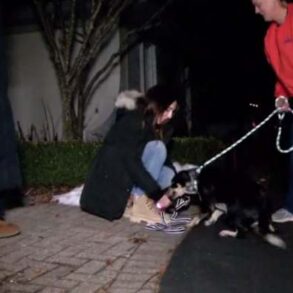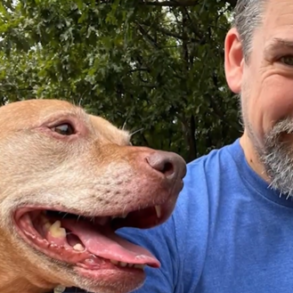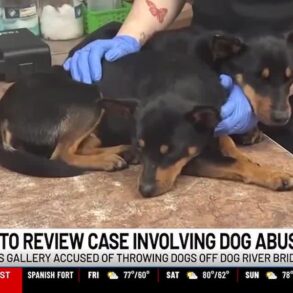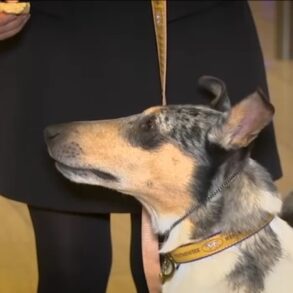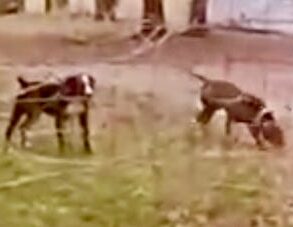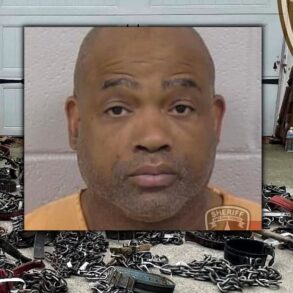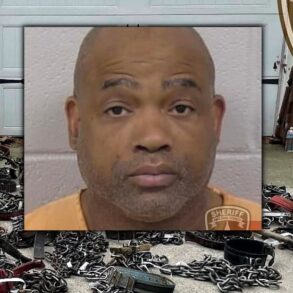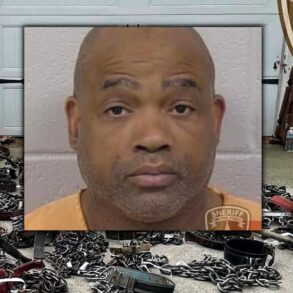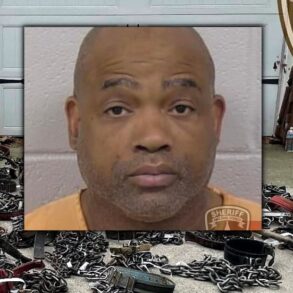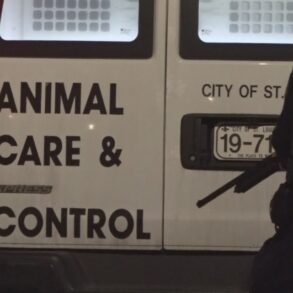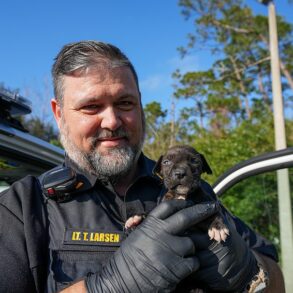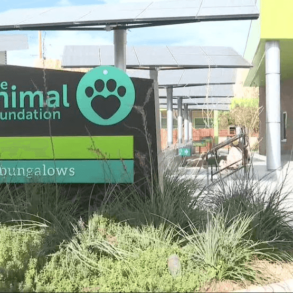COLUMBIA— Watching videos of dogfighting is a painful part of Janette Reever’s job.
As the program manager for animal crimes and investigations at the Humane Society, a nonprofit focused on animal welfare, she views videos of dogs battered, bloody and veering towards death.
Then, when its owner demands, the dog musters its remaining strength to keep fighting.
“These dogs are PTSD survivors,” she recently told the SC Daily Gazette.
The State Law Enforcement Division rescued 205 victims of dogfighting last year. Agents also found 23 dogs deceased and had to euthanize two more, according to statistics shared with the Gazette.

When SLED confiscates dogs as part of a raid, it partners with organizations like the Humane Society or the American Society for the Prevention of Cruelty to Animals, which can nurture the dogs back to health.
Should there not be an immediate home for an animal, the burden of veterinary and boarding costs falls on the agency, said Mark Keel, SLED’s chief since 2011.
“The problem that many agencies have is where do the dogs go?” said Reever, who’s based in Virginia.
‘The life is back’
SLED also partners with local centers.
They include Final Victory Animal Rescue in West Columbia, which has taken in multiple dogs from SLED, said its kennel manager, Michael Sniezek.
Once healthy, rescued dogfighting victims are adopted just as often as other animals at Final Victory, he said.
Another partner is Forgotten Now Family, a rescue center based out of Charlotte, North Carolina. Chrissy Elder, the head of the rescue, was unable to speak with the SC Daily Gazette due to being tied up with a case. However, she sent an Instagram video that had nearly 180,000 views and more than 19,400 likes as of Feb. 6.
The video is of a dog named King, who was seized by SLED in the middle of a dogfight in Richland County last April, according to the video. He arrived at Forgotten Now Family with a petrified demeanor and his white fur scratched and bloodied.
“I didn’t know it was real. I was someone who could never fathom someone would be so cruel,” reads the caption.
When King arrived at Forgotten Now, “his body was with us, but his eyes were dead inside” reads text overlaying the video. By the end, there are photos and videos of King being affectionate and smiling.
“The life is back in his eyes,” reads the caption. “Everything they robbed him of he seems to have forgotten for those moments.”
More than nine months after being rescued, King remains at the Charlotte rescue center. He has gone through months of physical and emotional rehab, and she hasn’t found the perfect new owner yet, Elder said through a text.
“He has become one of my best friends,” Elder wrote. “I invest so much into him because I see his worth. He was always so worthy and still is.”
Cases like King’s are not far-fetched.
Reever stressed the importance of experience in rehabilitating the dogs.
“Some make miraculous turnarounds,” she said.
When put in the proper environment, Reever said, animals rescued from dogfighting often end up as part of multi-pet households.
Budget request
Gov. Henry McMaster, who has had two English bulldogs in the Governor’s Mansion, emphasized the importance of combating animal violence during his eighth State of the State Address on Jan. 29 to a joint General Assembly.

“Animal fighting, especially dog fighting, is one of the cruelest criminal activities in our society,” said McMaster, who as attorney general in 2004 started South Carolina’s anti-dogfighting task force with then-SLED Chief Robert Stewart.
“Law officers estimate that most of the people participating in this barbaric activity have long criminal records,” he said, again asking the Legislature to give SLED more money “to end this unforgivable savagery.”
Last year, 18 dogfighting cases resulted in 60 arrests and 233 criminal charges, according to the governor’s office.
Richland County, where King was rescued, and Darlington County accounted for the most dogs seized, with 45 and 43, respectively; 38 were rescued from Colleton County, while 37 were rescued in Anderson County.
McMaster’s budget proposal for the coming fiscal year calls for sending SLED an additional $500,000 to cover veterinary bills and other costs associated with caring for the rescued animals.
Last year, he asked legislators to provide $566,286, which they did. In 2022, the Legislature sent SLED $181,148 for the salary and equipment of an agent dedicated to animal-fighting enforcement — again, matching McMaster’s request.
Months later, SLED helped execute “the biggest takedown of a dogfighting operation in South Carolina history,” with 305 dogs rescued and more than 20 arrests, according to the U.S. attorney’s office. The second-largest takedown followed a year later, in September 2023, with 120 dogs rescued, The State newspaper reported.
Over the last several years, SLED’s dogfighting unit has expanded to four, full-time agents. That’s resulted in an increase in cases, Keel told Senate budget writers this week.
If the number of seized dogs keeps growing, the proposed $500,000 could be needed to cover gaps when animal welfare groups can’t immediately take and care for the dogs, to include veterinary bills, he said.
Until last year, the cost of prosecuting animal fighting rings and the long-term care of their victims allowed abusers to escape paying for their crimes. As these cases dragged on, potentially for years, the costs fell on taxpayers. The dogs couldn’t be adopted until the criminal charges were resolved.
And once cases finally concluded, rarely did the guilty party pay, said Janell Gregory, the South Carolina director for the Humane Society.
“It was making policing animal crime very tough,” she said.
That changed with a law dubbed the “cost of care” act, which McMaster signed last May after both chambers passed it unanimously.
It flipped the financial burden of care from the government to the accused — and allowed for the dog’s placement with new, loving owners much faster.
Under the 8 1/2-month-old law, as long as a judge determines the seizure was justified, an accused owner must either pay for the dog’s care for the duration of the case or immediately forfeit ownership, allowing the dog to be adopted. So far, no accused owner has wanted to pay up.
“Right now, every dog we have seized, the owner has relinquished custody of those animals,” Keel said Wednesday.
This post was originally published on this site be sure to check out more of their content.






